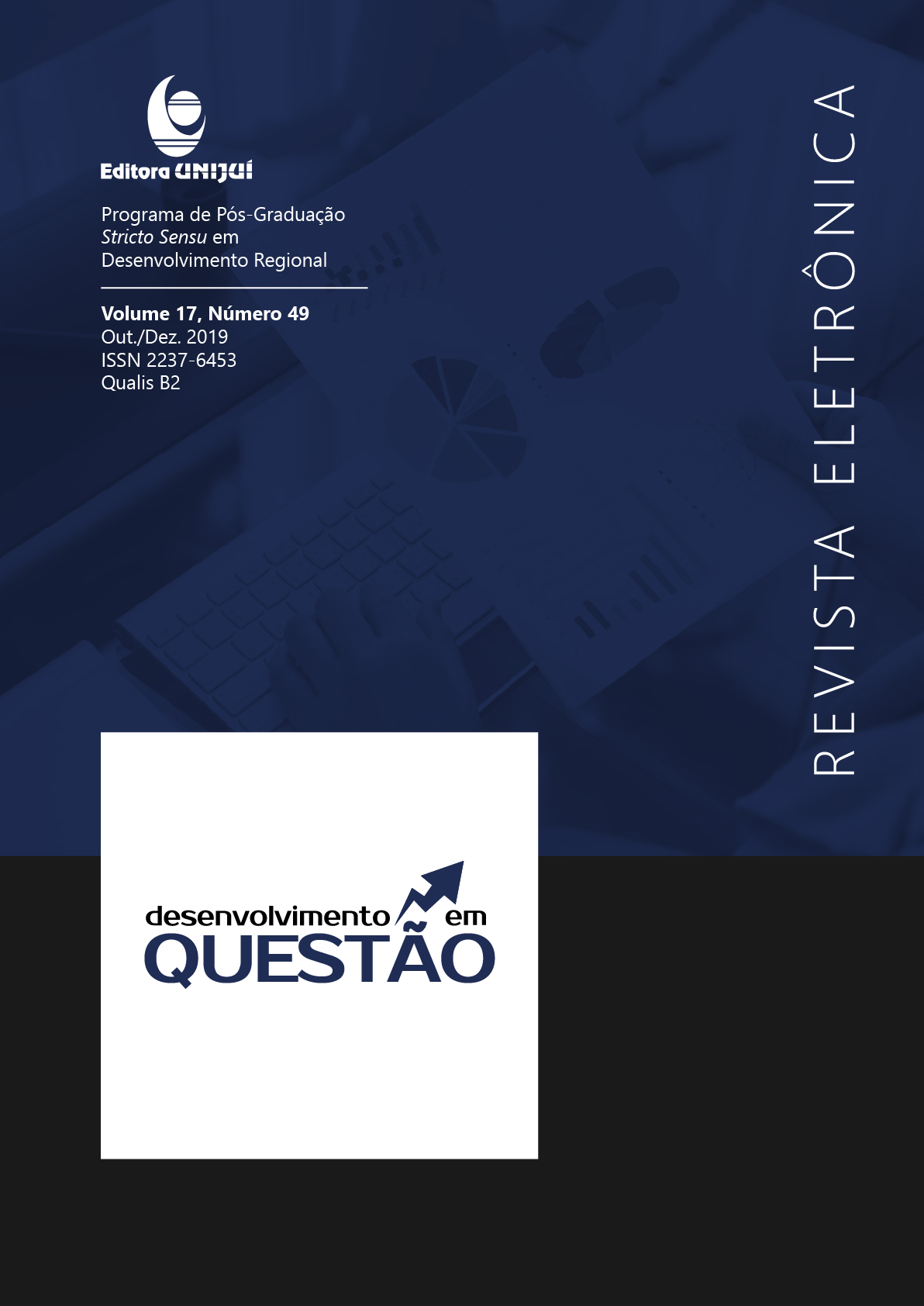Management of Solid Waste Integrated to the Responsibilities of Small and Micro Business and Municipal Public Power
DOI:
https://doi.org/10.21527/2237-6453.2019.49.112-135Keywords:
Solid Waste. National Policy on Solid Waste. Small and Micro Business. Reverse Logistic. Integrated Management Plans.Abstract
The objective of this work was to highlight the knowledge and perception of managers of Small and Micro Business (SMB) regarding solid waste management in the ABC Paulista Region. The analysis considers the local applicability of Law N. 12.305/2010 (National Solid Waste Policy), specifically of the Municipal Solid Waste Plans. This is an exploratory and qualitative study. A sample of 29 (twenty-nine) SMB distributed in the commerce, industry and services sectors was used. The study reports the experiences and practices of these managers, composed mostly by owners, but also with the participation of non-proprietary managers. A documentary collection was used in order to explore the intercropping model of the region and the content of the Municipal Plans, in addition to the extensive direct observation technique, through a self-administered questionnaire. In addition, interviews were conducted on the spot for the categories of SMB that presented themselves, for each sector, in greater quantity in the seven cities of the region. The questionnaire was composed of three parts: (A) for multiple choice closed questions; (B) for Likert type scale; (C) for open questions. It was verified that more than 60% of SMB managers do not have basic knowledge about the laws and regulations governing solid waste management and other environmental commitments, for example, the need to have environmental licensing regarding the local impact or possible to carry out a Solid Waste Management Plan (Reverse Logistics). On the other hand, a significant number of respondents showed a willingness on sustainable practices, worrying about using less aggressive inputs to the environment in their productive processes and to separate their waste correctly. It concluded that, except for industrial and health waste, the interaction of MSE with the local Government did not register cohesion, highlighting the distance between the proposals presented by the municipal governments of ABC in the Municipal Plans and the practices reported by the administrators with that actor.
Downloads
Published
How to Cite
Issue
Section
License
By publishing in Revista Desenvolvimento em Questão, authors agree to the following terms:
All works are published under the Creative Commons Attribution 4.0 International License (CC BY 4.0), which allows:
Sharing — to copy and redistribute the material in any medium or format;
Adaptation — to remix, transform, and build upon the material for any purpose, even commercially.
These permissions are irrevocable, provided that the following terms are respected:
Attribution — authors must be properly credited, a link to the license must be provided, and any changes made must be indicated.
No additional restrictions — no legal or technological measures may be applied that legally restrict others from doing anything the license permits.
Notices:
The license does not apply to elements that are in the public domain or covered by legal exceptions.
The license does not grant all necessary rights for specific uses (e.g., image rights, privacy, or moral rights).
The journal is not responsible for the opinions expressed in the articles, which are the sole responsibility of the authors. The Editor, with the support of the Editorial Board, reserves the right to suggest or request modifications when necessary.
Only original scientific articles presenting research results of interest that have not been previously published or simultaneously submitted to another journal with the same purpose will be accepted.
Mentions of trademarks or specific products are intended solely for identification purposes and do not imply any promotional relationship by the authors or the journal.
License Agreement (for articles published from 2025 onward): Authors retain the copyright to their article and grant Revista Desenvolvimento em Questão the right of first publication.











